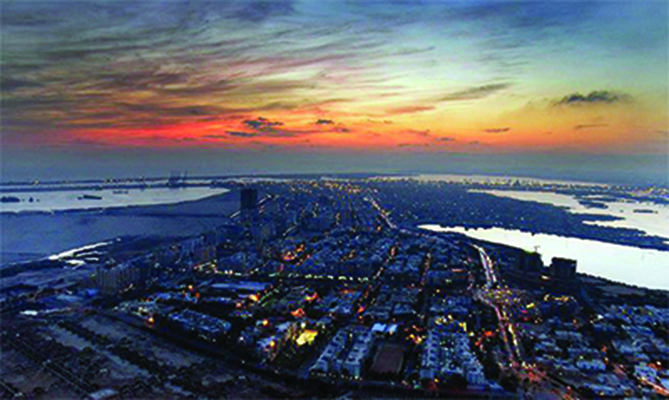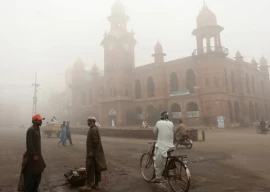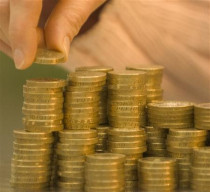
Economic reforms are usually perceived as unpopular and under democracies, these reforms are associated with a heavy political cost. Former finance minister Miftah Ismail and Prime Minister Shehbaz Sharif have repeatedly claimed that they are paying the political price of taking the right economic decisions. Exchange rate mechanism is a case in point.
To begin with, I am in favour of a market-led exchange rate and have opposed, like most of the economists, the artificial pricing of dollar and will use this policy to explain my position. While we need to differentiate between the stable currency and fixed exchange rate, it is well known that when former PM Imran Khan allowed the free float of exchange rate, his government came under heavy criticism. However, the government had made a historical correction.
When you keep prices artificially under a lid, then the consequences are ugly in the form of steep devaluation. This is different from a deliberate devaluation of currency, which is as harmful as an artificial exchange rate mechanism. This is what happened in the 1970s. In comparison with the steep devaluation of rupee in 2018, the devaluation in 2021 was not a result of any reform – it was the result of policy instability.
Miftah Ismail wasted precious two months while giving conflicting signals and the country paid its price and in fact is still paying. While the returning finance minister Ishaq Dar should continue to honour Pakistan’s commitment to the IMF programme, including the flexible exchange rate policy, he needs to have some considerations, which will hopefully help him over the next one year without further losing political capital.
First things first. Black markets are the result of a poor policy mix and if the exchange rate wedge between open market and informal market increases, policymakers need to do something. When market participants face uncertainty, and find an arbitrage, they exit formal market and find alternatives. In recent weeks, traders have found informal mechanisms of dollar payments, mostly via Dubai. Whereas the government – and the central bank – imposed administrative controls – like 100% cash margin, this has built upward pressure on the dollar. All such administrative controls should be withdrawn.
Second, the old fallacy about import control and even Miftah fell for it. About 90% of Pakistan’s imports are of essential nature. They include petroleum products, industrial raw material, raw material for medicines, and now even cotton. There is no way a government can solve the balance of payments problem by making imports harder.
While it may yield a better picture for a couple of months, the reality does come back, and usually in an uglier manner. Third, the only way to improve the exchange rate is through facilitating channels for dollar inflows – more exports, more FDI and more remittances. This order needs to be followed. Remittances flow is a double edge.
They help in bringing dollars, but at the same time, they fuel more consumption. Any serious contenders of FDI in Pakistan will first evaluate the exchange rate policies. If they find that the dollar outflow is harder, they will not allow the inflow to happen. At this point, devaluation poses the number one risk to FDI, as all business planning has come to a naught, unless returns are dollarised – as in the case of independent power projects.
On the contrary, the telecom operators are in a very difficult position – they earn in rupees and have to pay back – both to the government (eg licence fee) and their principals – in dollars. As the SBP Real Effective Exchange Rate indicates, our currency is undervalued by 6%. An undervalued exchange rate is good news for exports as it offers some level of competitive advantage. This is where, sound economics meet good politics.
While maintaining the exchange rate flexibility is a sound economic policy, it becomes a necessity for a country like Pakistan with low forex reserves. The flexibility allows adjustment in a systematic manner and reduces the discretionary role of the government. Investors can follow rules more confidently while the discretionary powers, which are often subject to political manoeuvres, feed uncertainty in the system. The administrative steps, which Miftah Ismail took during the last few weeks, such as slowing down import clearance, were examples of such discretionary measures.
Not only these policies caused losses to the industrialists – and exporters – they also failed after a short spell of stability. Lastly, posturing is as important, if not more, as the policy itself. How a finance minister speaks and presents himself carries weight. I wrote some years back that even if we say that Ishaq Dar policies were wrong, his posturing was correct, whereas Asad Umar policies may be right, his posturing was wrong.
It seems that Miftah Ismail made same error in addition to the policy mistakes. And just like PTI had to rely on the experienced hand of Dr Hafeez Sheikh, and then Shaukat Tarin, similarly, PML-N had to bring back deftness of Ishaq Dar to spell a magic of confidence in markets. I hope it will work.
THE WRITER IS FOUNDER AND EXECUTIVE DIRECTOR OF PRIME, AN INDEPENDENT ECONOMIC POLICY THINK TANK BASED IN ISLAMABAD

1731914690-0/trump-(26)1731914690-0-405x300.webp)









1731884290-0/image-(9)1731884290-0-270x192.webp)






COMMENTS
Comments are moderated and generally will be posted if they are on-topic and not abusive.
For more information, please see our Comments FAQ